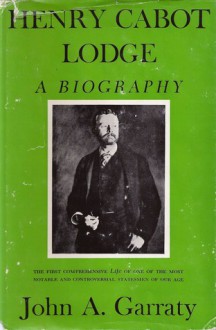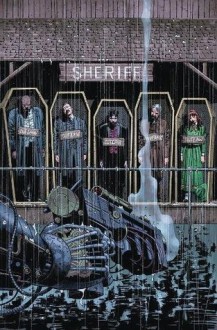
From Daniel Webster to Elizabeth Warren, Massachusetts has a storied tradition of electing United States senators who enjoy an outsized presence on the national stage. One of the most prominent among this group is Henry Cabot Lodge, the Boston Brahmin who over the course of his three decades in the Senate exercised a profound and enduring influence on both national and international events. Drawing upon Lodge’s personal papers and the records left by his contemporaries, John A. Garraty pushes past the stereotypes and misconceptions surrounding Lodge to better understand the man and his legacy as a politician.
Garraty begins his book by recounting Lodge’s early years. The son of a prominent upper-class family, he enjoyed a privileged childhood and an elite education in which he earned both a legal degree and a Ph.D in history and government. Though initially an academic, he soon gravitated towards public office and was a rising star in Massachusetts politics in the 1870s and 1880s. These were formative years for the budding politician, during which time Lodge took up the cause of civil service reform and campaigned against the corruption of the Grant administration. Yet by the early 1880s Lodge had abandoned his flirtation with party heterodoxy and became a committed party man, a stance he would maintain for the rest of his long political career.
Lodge enjoyed a rapid ascent in politics due to his wealth and his social connections, winning a seat in the House of Representatives in 1886 that he would hold until his election to the Senate in 1892. His ascent in Congress coincided with the growing importance of foreign affairs in national politics, a subject dear to Lodge. An advocate of both a stronger navy and intervention in Cuba, he emerged as a leading supporter of American expansion abroad, a stance he shared with his good friend Theodore Roosevelt. Their relationship receives considerable attention throughout Garraty’s book, as he shows how the two men personally remained close even after Roosevelt’s bolt from the Republican Party in 1912 put them at political odds with one another.
Yet the attention Garraty gives to Lodge’s friendship with Roosevelt pales before that of the space devoted to Lodge’s clashes with Woodrow Wilson. These chapters take up nearly a quarter of the book, describing an epic political confrontation between the two men colored by a high degree of personal hostility. This conflict culminated in an epic fight over the Versailles Treaty and the League of Nations, the legislative battle over which Garraty recounts in considerable detail. Here he demonstrates that the outcome was not a foregone conclusion, and was decided as much by the personal qualities of the men involved as much as they were the broader issues at stake. Though Lodge emerged the victor in the sense that the treaty to which he objected failed to win ratification, it proved the climax of his career, as his influence faded with the return of the Republicans to the White House just three years before his death in 1924.
Ever since it was first published in 1953 Garraty’s book had stood as the definitive biography of Lodge, and it’s difficult to imagine how it could be bettered. The author’s coverage of Lodge’s career is thorough in its scope and penetrating in its analysis, pushing through his subject’s justifications and dissembling to provide an understanding of Lodge that is both critical and fair. Though some aspects of Lodge's career could have been explored in greater detail (such as his views of Roosevelt’s domestic policies as president), it remains the best biography available about Lodge, one that endures thanks to Garraty’s solid scholarship and his perceptive assessments of his subject.

 Log in with Facebook
Log in with Facebook 








